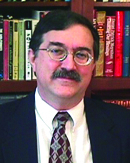
The following is an excerpt, written by Wilfred McClay, from the C.S. Lewis Foundation Newsletter:
“I was thrilled to hear of the creation of C.S. Lewis College. It’s a bold, even audacious, venture, coming at a moment when the currents of history are running against such an undertaking.
A severe recession makes the founding of any small private liberal-arts college a perilous task, not only because starting a new college is such an astoundingly expensive proposition, but also because such a college’s prospective students may not be willing to risk an experimental program without pedigree and without vocational pretensions.
Who can blame them? The concept of robust general education has atrophied in the American academy, and the unity of knowledge has been discarded as obsolete.
The humanities disciplines in which Lewis made his mark have been badly reduced in stature and coherence, undermined and marginalized by even their most eminent practitioners. And religious faith is widely seen, especially in the academy, as a nest of pathology, the sworn enemy of reasoned discourse and rational inquiry.
Under such circumstances, narrow specialization and vocationalism might seem the lesser evils, the more prudent alternatives.
But the founders of C.S. Lewis College have elected to defy the odds and light a candle of renewal on behalf of all higher learning.
Their enterprise will prosper by following Lewis’s incomparable example. No one in modern history better exemplifies the intellectual life fully informed and enlivened by Christian belief. Indeed, Lewis’s appeal, not only as a Christian apologist but as a scholar and man of letters, suggests the radical possibility that faith and learning not only are compatible, but are indispensable partners. We will come to relearn that fact over the course of the 21st century.
The university’s religious origins were not a fluke of history, but the foundation to which it will have to return to restore itself. C.S. Lewis College promises to be one of the chief places where that restoration can happen.”
For more stories from the newsletter, please click here.
A founding member of C.S. Lewis College’s Council of Distinguished Fellows, Wilfred M. McClay has been SunTrust Bank Chair of Excellence in Humanities at the University of Tennessee at Chattanooga, where he is also Professor of History, since 1999. He is author of The Masterless: Self and Society in Modern America (1994), which won the 1995 Merle Curti Award of the Organization of American Historians and is Editor of Figures in the Carpet: Finding the Human Person in the American Past (2007).